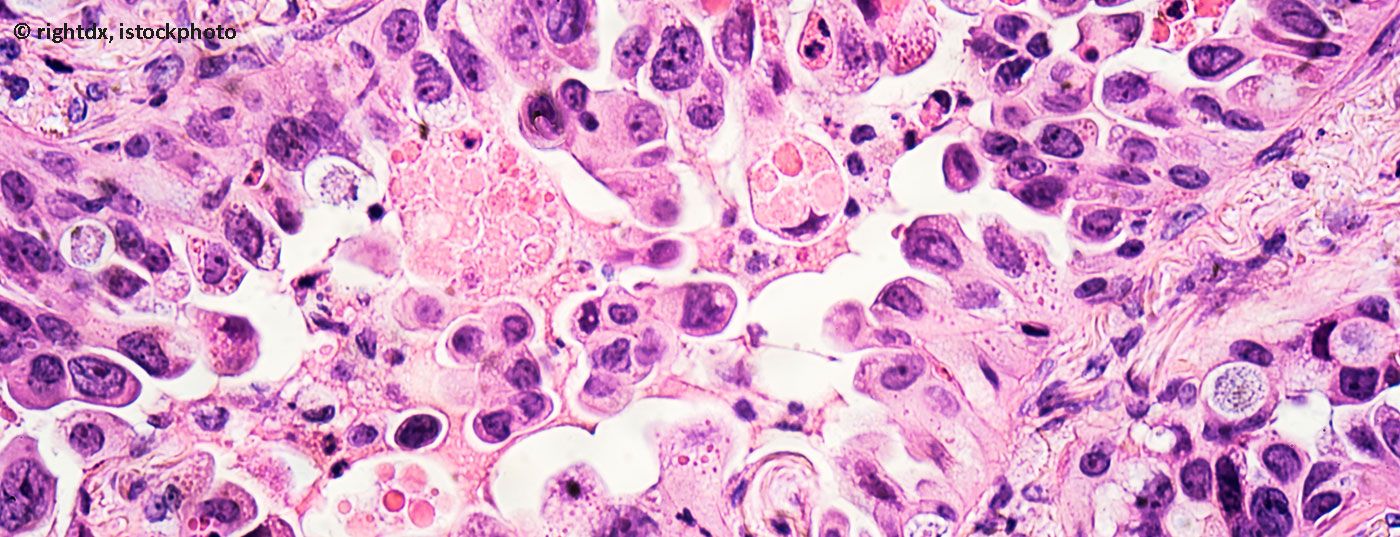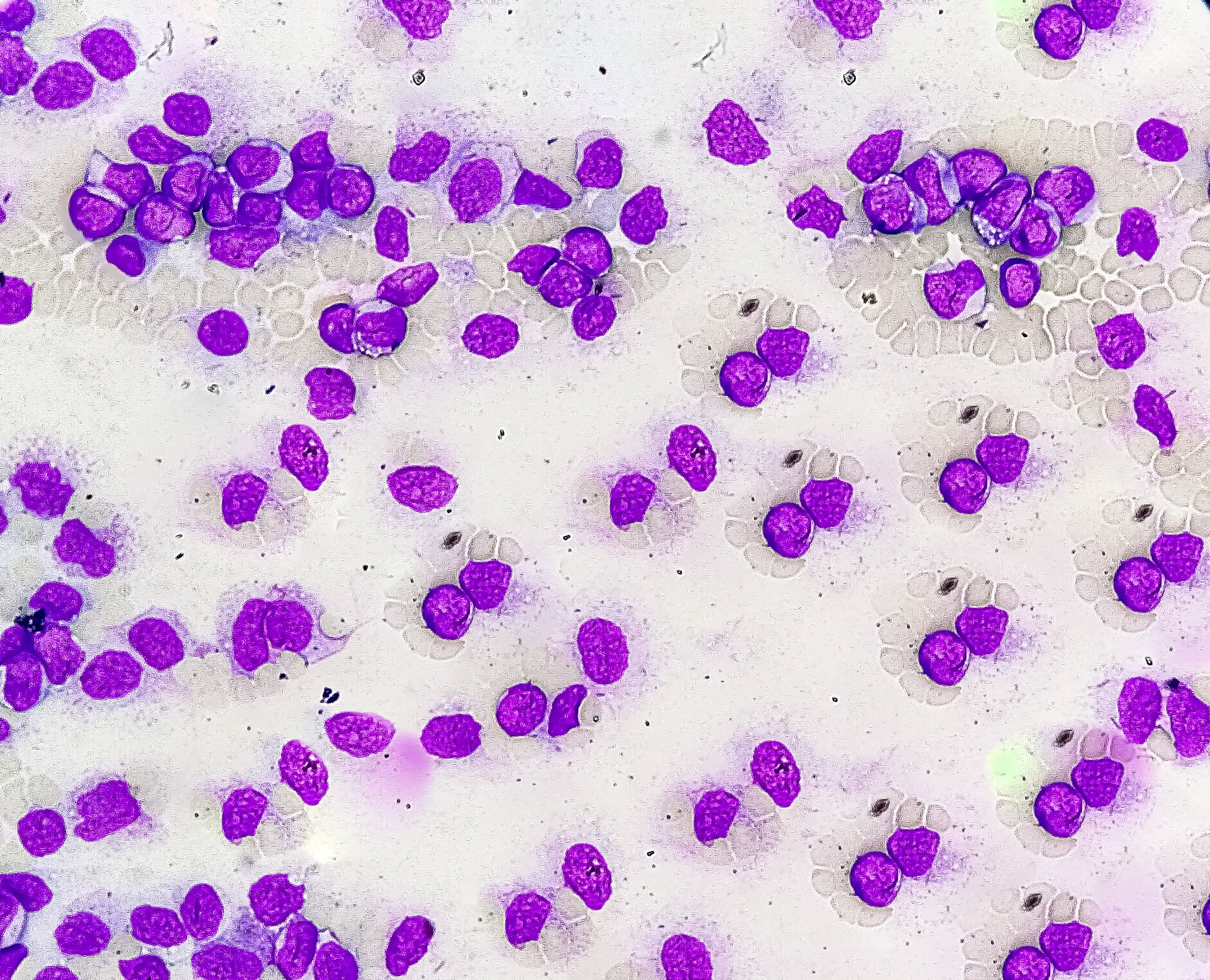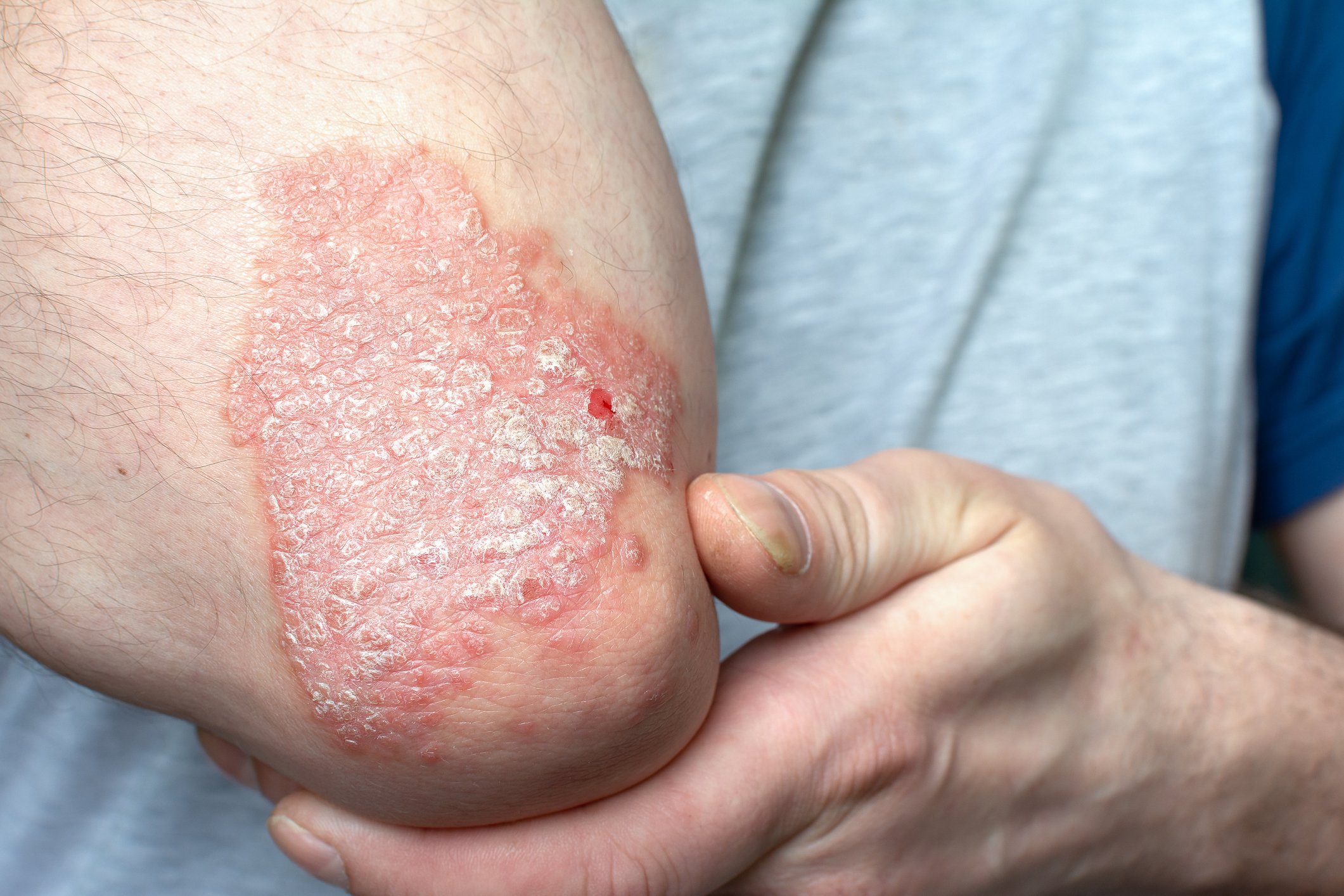Immunotherapy is one of the milestones of cancer therapy. However, the selection of particularly suitable patients remains a major challenge for first-line use.
Dr. Curioni, immunotherapy is increasingly coming into focus in lung cancer therapy. What are the most exciting developments at the moment?
Dr. Curioni:
Several so-called “practice changing” studies have been presented at the World Conference on Lung Cancer in Toronto in September 2018, both in non-small cell (NSCLC) and small cell carcinoma (SCLC). In SCLC patients, the addition of atezolizumab to standard platinum-containing chemotherapy improved progression-free and overall survival (IMpower 133 trial). In the last 10-20 years, such progress has been achieved for the first time in this patient group. We now recommend this combination therapy for SCLC patients in the first line.
In NSCLC patients, there are also promising new data on pembrolizumab and atezolizumab in the first-line setting. In the KEYNOTE407 trial, adding pembrolizumab to chemotherapy significantly improved prognosis in patients with squamous cell carcinoma compared with chemotherapy alone. This is also “practice changing” and is supported by similar data for immunochemotherapies with atezolizumab in advanced NSCLC recently shown at ASCO 2018 and ESMO 2018 (studies IMpower130/131/132). Immunochemotherapy is also preferable in this patient group according to these data. However, there are still many questions about the best selection of patients for this combination therapy. The signature of mutations and interferon-gamma play a major role here.
Also important for practice are the data from the PACIFIC trial in stage IIIa and b NSCLC patients shown in Toronto. Here, chemoradiotherapy was performed with or without the additional use of immunotherapy with durvalumab. Overall survival was significantly better in the group of patients with additional immunotherapy (2-year survival 66.3% vs. 55.6% placebo, p=0.005) [1]. CONCLUSION: Patients with advanced NSCLC are increasingly treated with combination therapy of immunotherapy and chemotherapy (stage IV) or immunotherapy and chemoradiotherapy (stages IIIa and b). This opens a great new chapter in immunotherapy.
What is the status quo in your clinic – i.e. what is the current proportion of NSCLC patients treated with first-line immunotherapy?
In the advanced stage, these are pretty much all patients without driver mutations, depending on the approval. In stage IIIa and b, patients receive immunotherapy in combination with radiochemotherapy; in stage IV, all patients receive either immunotherapy alone or combination therapy with chemotherapy. Pembrolizumab has already been approved in the first-line stage IV setting. The decision to use immunomonotherapy or combination therapy depends on biomarkers. If PD-L1 expression is ≥50%, it can be treated with immunotherapy alone; if expression is <50%, we rely on combination therapy.
After all, there are already study data that the checkpoint inhibitors used for immunotherapy work independently of PD-L1 expression. How significant will this biomarker still be for patient selection in the future?
For pembrolizumab, trial data to date apply only to patients with PD-L1 expression ≥50%; for nivolumab and ipilimumab, PD-L1 expression appears to be less relevant in advanced NSCLC when tumor mutation burden (TMB) is high. In the CheckMate-227 trial, progression-free survival was significantly improved with this immune combination therapy compared with chemotherapy alone in NSCLC patients whose tumors showed many mutations (cut-off ≥10 mutations/megabase) (42.6% vs. 13.2% after one year) [2]. However, a press release showed no differences in overall survival between the two groups. Therefore, it is very speculative so far to draw conclusions from these data already. However, tumor mutation burden may be a predictive marker for the use of immunotherapy, as we already know from other tumor entities.
Let’s talk about the further development of lung cancer therapy. What are the chances that in the future the majority of patients can be treated without chemotherapy?
We have the data from first-line immune combination therapy with nivolumab and ipilimumab, which has achieved a high response rate in virtually all NSCLC patients. This combination therapy could therefore currently already be an alternative for patients who do not want chemotherapy. However, we do not yet know whether this will also improve the prognosis in all patients.
In the future, many new immune combination therapies, including new targets, will be available, not only for advanced stages of lung cancer, but probably also at earlier stages. It would be ideal to know the patient’s immune system and the cancer cells so well that the immune system could be specifically activated against this cancer. Perhaps, on the way to chemotherapy-free treatment in the future, immune vaccination with T cells could also help.
You mentioned patient acceptance of cancer therapy. How relevant is this factor in your clinic when choosing lung cancer therapy?
There should be enough time for patient counseling. Ten years ago there was only chemotherapy, now there are many other options that patients need to be educated about. We should openly tell the patient that we cannot predict whether or not they will respond or whether or not they will get severe side effects from therapy. Of course, the patient’s wishes should also be taken into account. For example, for an 80-year-old, quality of life may be more important than survival time; many patients want to avoid hair loss if possible, and there are many patients, often younger, who are willing to put up with any side effects for effective therapy.
Immunotherapy is considered to be a much more tolerable treatment than chemotherapy. How do you assess the risk of side effects of immunotherapy?
We have to distinguish between immunomonotherapy and -combination therapy. Of course, when comparing immunotherapy directly with chemotherapy, the advantages are clearly on the side of immunotherapy. Patients may also suffer from fatigue with immunotherapy, but to a lesser extent than with chemotherapy. Chemotherapy has side effects such as infections, nausea, etc., which are usually much less common under immunotherapy. However, there are about 5% of those treated with side effects that are also severe, such as inflammation of the lungs or intestines to the heart. One must be aware of these side effects. However, immunotherapy is undoubtedly much better tolerated than chemotherapy and we can usually manage the side effects much better.
If immunotherapy is used in the firstline, what are the consequences for the choice of subsequent lines?
If patients have been treated first with immunomonotherapy, the second step would be chemotherapy. If chemotherapy alone was used first, a different type of chemotherapy would be used in the second line. Sequential immunotherapies are currently only available in trials. We don’t know yet, but we may try a re-challenge, which means treating patients who have not responded to immunotherapy or immunochemotherapy with a different immunotherapeutic agent or combination therapy. This is currently being explored in thoracic tumors. However, we must not forget that the aforementioned therapy concepts with chemotherapy and immunotherapy in lung cancer only apply to patients without treatable alterations, i.e. without activation of e.g. EGFR or ALK. If such treatable mutations are present – which is the case in about 15% of lung cancer patients – targeted therapy is and remains the standard of care. Only in the second-line setting can the use of immunotherapy or immunochemotherapy be considered, if appropriate.
Interview: Roland Fath
Literature:
- Antonia SJ, et al: Overall Survival with Durvalumab after Chemoradiotherapy in Stage III NSCLC. NEJM 2018. DOI: 10.1056/NEJMoa1809697.
- Hellmann MD, et al: Nivolumab plus ipilimumab in lung cancer with a high tumor mutational burden. N Engl J Med 2018 May 31; 378(22): 2093-2104.
InFo ONCOLOGY & HEMATOLOGY 2018; 6(6): 2-3.











